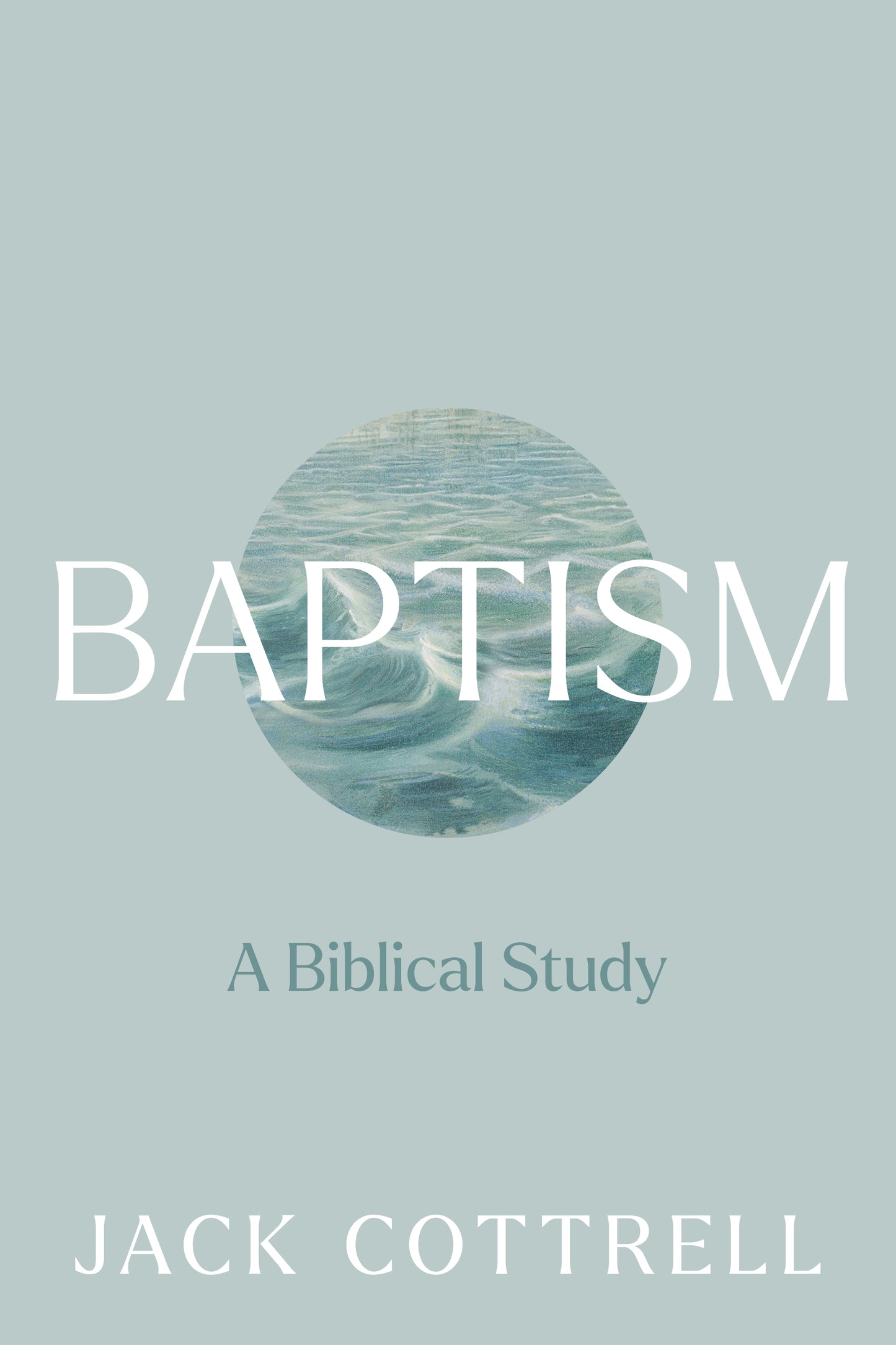College Press Publishing
Baptism: A Biblical Study
Baptism: A Biblical Study
Couldn't load pickup availability
OVERVIEW
As stated in the introduction, “The main problem underlying the modern confusion on baptism is not paucity of Biblical material, but rather an a priori commitment to certain theological presuppositions.”
Scripture is far from silent on this subject. This book brings a clarity of understanding by exploration of the meaning of the original words, the historical background of the texts as well as the many comparative references to be found in other parts of the Bible.
In this easy-to-understand study, Cottrell explores the 12 principle texts on the subject of baptism in the New Testament. Each citation is given a chapter with one receiving two chapters. The references under consideration are as follows:
- Matthew 28:19-20
- Mark 16:15-16
- John 3:3-5
- Acts 2:38-39 (two chapters of coverage)
- Acts 22:16
- Romans 6:3-4
- 1 Corinthians 12:13
- Galatians 3:26-27
- Ephesians 5:25-27
- Colossians 2:11-13
- Titus 3:5
- 1 Peter 3:21
Baptism: A Biblical Study has 13 chapters and 171 pages.
ISBN 978-0-89900-336-8
FEATURES
- Ideal for small group study, a study guide is included within the book that contains specific questions for discussion related to each chapter
- Though written for the average reader, this book provides many scholarly footnotes that provide engagement at a deeper level
- A concise bibliography that will lead to further investigation of other sources
- Chapter summaries that synthesize the content of the that section
EXCERPTS
“… our goal in this study is to examine the main New Testament passages on the meaning of baptism as if we were hearing or seeing them for the first time. How would the original hearers of certain key statements have understood them? How would Nicodemus have understood John 3:5? How would Peter’s audience have interpreted Acts 2:38? How did Paul understand Ananias’ imperative in Acts 22:16? Also, how would the original readers of Acts and Romans and Colossians have interpreted the teaching on baptism contained therein? How would they have related this teaching to their own personal experience? For one who reads the New Testament today, what is the natural, face-value meaning of the passages on baptism?” (p. 7)
“As long as one remains in the relationship to Christ begun at baptism, he is justified or forgiven as the result of what happened at baptism. Thus all our lives we should remember our baptism, and be encouraged by that memory when we begin to feel discouraged in our Christian living or to doubt the validity of our hope in Christ Jesus.” (p. 58)
ENDORSEMENTS
"We recognize that the view of the meaning of baptism presented here is very different from the view held by most Protestants, but we earnestly contend that it is the New Testament’s own view and that the content of the texts themselves cannot be construed in any other way. Altogether we study twelve separate texts in detail, with references to several others along the way. What is remarkable is not only the fact that they do present baptism as the time God has appointed for initially bestowing salvation upon believing, repentant sinners, but also the fact that they are unanimous in doing so. This is not some obscure inference that must be laboriously forced from the fringes of a few texts, but is the central theme of them all!"
OTHER LANGUAGES
Since its initial publication, Baptism: A Biblical Study has been translated into Spanish. Click the link below to purchase a copy.
OTHER BOOKS BY THIS AUTHOR
Bible Prophecy and End Times CD
Bible Prophecy and End Times MP3
Headship, Submission, & The Bible: Gender Roles in the Home
What The Bible Says About God The Creator, Ruler, Redeemer: God Most High
What The Bible Says About The Holy Spirit: Power From On High
Bautismo: Un estudio bíblico (Baptism: A Biblical Study)
La fe una vez dada (The Faith Once for All)
Los fundamentos de la fe (Faith's Fundamentals)
Ser tan bueno no es tan bueno (13 Lessons on Grace)
ABOUT THE AUTHOR
Jack Cottrell served for many years as Professor of Theology at Cincinnati Christian University. His doctoral studies were completed through Princeton University and his MDiv was through Westminster Theological Seminary.
BULK PRICING
For orders of 21 or more, please contact us at (417) 623-6280 or email info@collegepress.com
Share

